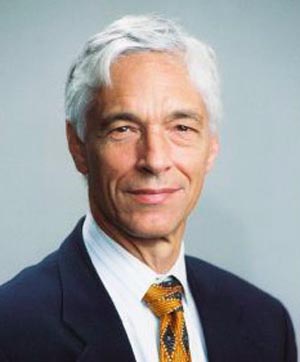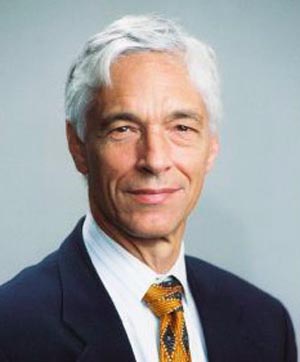Since joining the Brookings Institution in 2002, Rieffel, a former US Treasury Department staff economist, has made Myanmar’s economic transition a focus of his policy research work. He was in the country in October and November to assess foreign aid to Myanmar.
In terms of economic revival, what are Myanmar’s most pressing needs?
An economy, even a rudimentary one like Myanmar’s, is a complex system. This means that to perform at a high level, a large number of elements need to be functioning properly at the same time. Right now, it is hard to identify a single element that is functioning properly.
Substantial progress has been made since March 2011 in removing obstacles to proper functioning, like ending some monopolies and abandoning the official exchange rate, but much more needs to be done to have a properly functioning electrical system, telecommunications system, banking system, land tenure system, trade regime, foreign exchange regime, etc.
Furthermore, in complex systems, it is necessary for the number of properly functioning elements to grow until a “tipping point” is reached before the benefits of improvements can be easily seen.
What is needed to ensure that the whole country benefits from Myanmar’s sizable natural gas reserves?
There are three distinct challenges for the government of Myanmar in this area. The first is to ensure that the country is getting the full market value for the natural gas that is currently being extracted and to improve transparency for the revenues associated with this extraction.
The second is to adjust the division of the gas produced so that a larger share is consumed inside Myanmar and a smaller share is exported to other countries.
The third is to choose a rate of extraction in the future that does not unfairly favor today’s population and disfavor the generations to come. At some rate of extraction, Myanmar’s natural gas is more valuable kept in the ground than extracted and used.
Myanmar has aspirations to become a leading rice exporter again, but farming technology is virtually 19th century. What needs to be done to change this?
Farming technology across most of East Asia has changed dramatically over the past four to five decades, but this progress has had an important downside: widespread destruction of soils through inappropriate use of chemicals (fertilizers, pesticides, herbicides) and harmful cultivation practices. Hopefully, Myanmar can avoid the fate of other countries and emerge as the leading producer of healthy food in East Asia.
There is much talk about Myanmar again become a leading exporter of rice, but setting this as an objective is not a smart way to improve the livelihoods of farming and non-farming rural households, representing more than 60 percent of the nation’s population. A better approach is to allow farmers to choose their crops freely and then work to lower their costs by improving infrastructure (roads and ports), making available high-yielding varieties of seed, providing credit on reasonable terms, etc.
What is important for Myanmar’s economic success is raising rural household incomes, not achieving some arbitrary export target.
What are your concerns about foreign aid to Myanmar?
In brief, we have seen other countries suffer from an excess of foreign aid. Today, Myanmar is the top priority country for almost every aid agency in the world: multilateral agencies like the World Bank, bilateral agencies like USAID and international NGOs like Mercy Corps. Visitors from all of these agencies are swarming into Myanmar and seeking meetings with government officials to initiate or expand programs. These visits divert the time of senior officials away from essential work on policy analysis and implementation.
At the same time, the government of Myanmar is struggling to organize itself and adopt procedures to manage the immense array of donor agencies. It will take exceptional discipline on the part of the donors and unprecedented coordination on the part of the government to avoid the adverse impacts seen in other countries in similar circumstances.
This story first appeared in the December 2012 print issue of The Irrawaddy magazine.
















